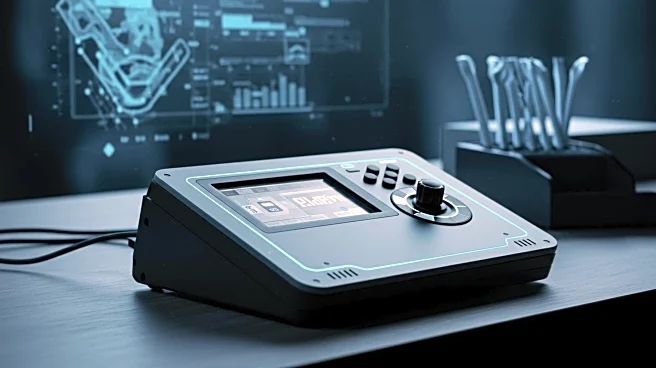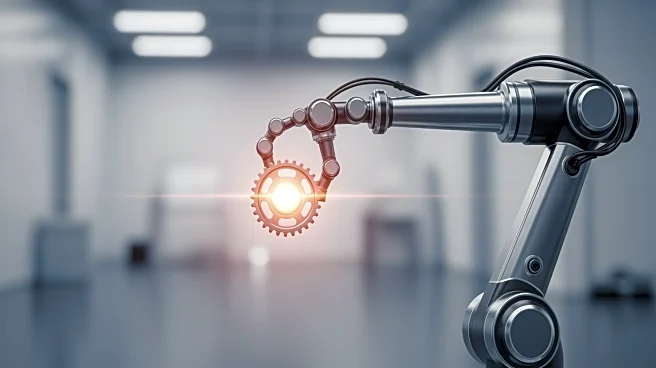What is the story about?
What's Happening?
The automation industry is undergoing significant changes with the integration of AI and low-code solutions in industrial controller programming. Generative AI, referred to as Industrial Copilot for Engineering, is revolutionizing programming by providing intelligent code assistance and preserving knowledge, which helps bridge the skills gap as experienced programmers retire. Additionally, the adoption of standardized data models like OPC-UA and MQTT ensures compatibility and interoperability across systems, facilitating data processing and analysis on IIoT platforms. The use of widely-used programming languages is simplifying control structures and enhancing IIoT system functionality.
Why It's Important?
These advancements are crucial for the automation industry, which faces challenges such as a shortage of skilled workers and obsolete hardware and software. By integrating AI and low-code solutions, companies can streamline programming processes, improve system compatibility, and enhance performance. This transformation is expected to attract a new generation of software automation engineers, fostering innovation and efficiency. Businesses that adopt these technologies may gain a competitive edge, while industries reliant on automation could see improved productivity and reduced operational costs.
What's Next?
The industry is likely to see a phased migration to newer controllers, integrating modern engineering tools and improving performance. Companies may focus on knowledge transfer sessions and updating training materials to ensure continuity as experienced staff retire. The ongoing development of AI and low-code solutions will likely lead to further innovations in industrial automation, with potential collaborations between tech companies and educational institutions to address the skills gap.
Beyond the Headlines
The shift towards AI and low-code solutions in industrial programming raises ethical considerations regarding data privacy and security. As these technologies become more integrated, companies must ensure robust security measures to protect sensitive information. Additionally, the reliance on AI may lead to discussions about the role of human oversight in automated systems, prompting debates on the balance between technology and human intervention.
















